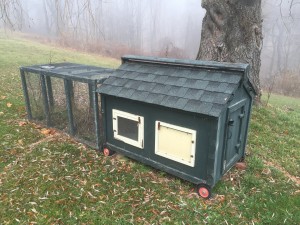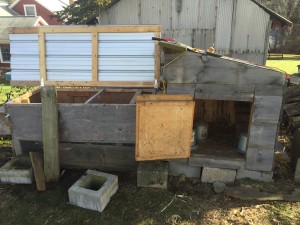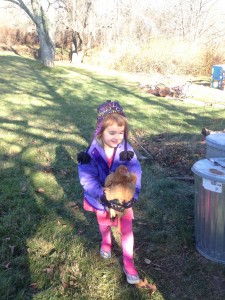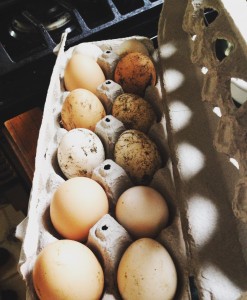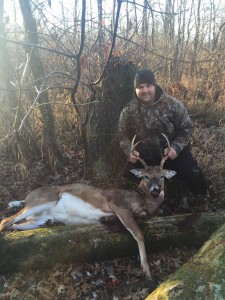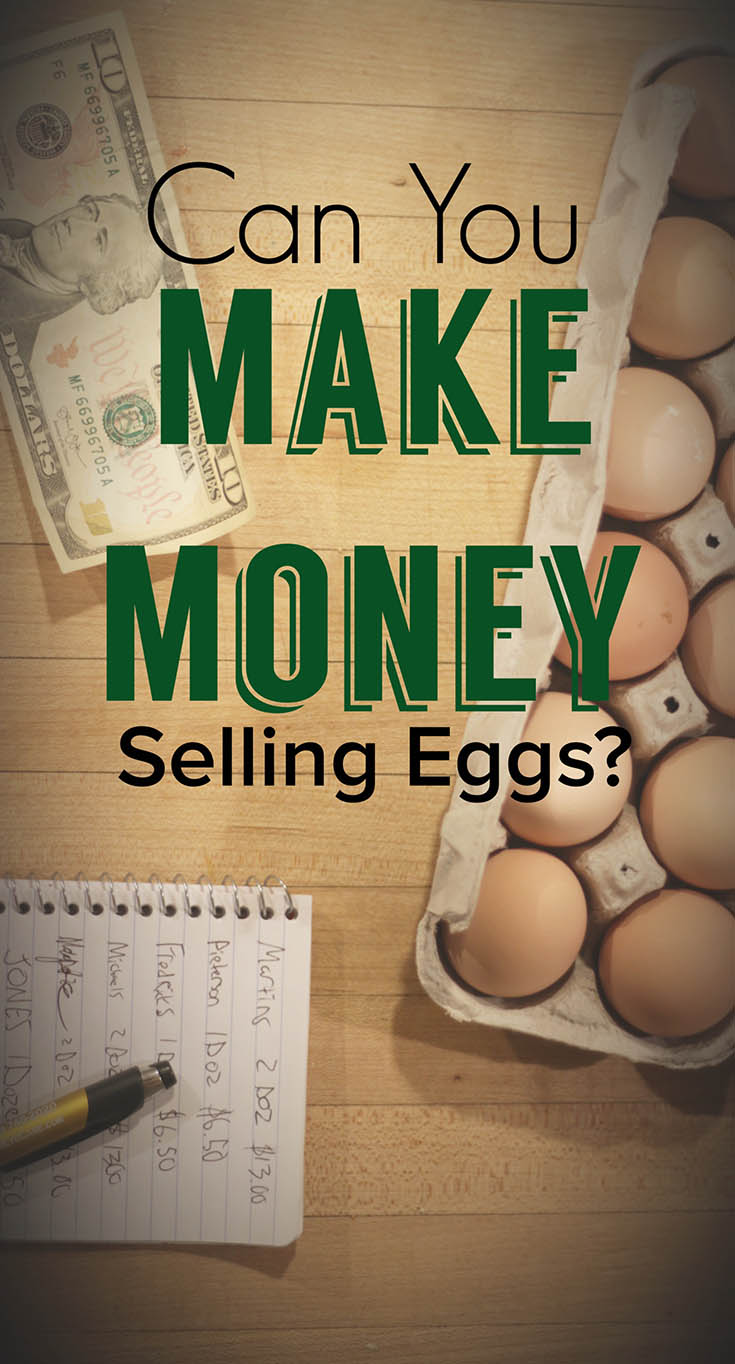The Chickens and the Egg... Can you Make Money Selling Farm Fresh Eggs? Chickens, Eggs, and Homestead Business
Homesteady - Stories of Living off the Land
Release Date: 12/14/2015
 Starting a Successful Craft Butcher Business from Scratch
Starting a Successful Craft Butcher Business from Scratch
Homesteady - Stories of Living off the Land
The Heritage Craft Butchers didn't learn to cut meat in the super market. They learned in a barn. Cutting up their own home grown pigs, and curing the meat in an old refrigerator, the guys decided they would try to follow their passion and start a butcher shop. They found an old bank in the middle of Pennsylvania farm country. Perfect. Lots of elbow grease, experimenting with old world recipes, and bourbon, and here they are running a successful butcher business from scratch. Check them out at their or at
info_outline LIVESTOCK - The 10 Golden Rules
LIVESTOCK - The 10 Golden Rules
Homesteady - Stories of Living off the Land
I feel one of the best things you can do for yourself, and especially for your children, is to raise some livestock, even if only for a short time. The connection you and your family will form to these animals that are so dependent on you is powerful. And the rewards livestock give back are hard to beat! If you are thinking about getting some livestock in the future but are not sure how, you will enjoy this excerpt of the 4th Lesson in the , Your First Livestock. In this 4th lesson we will talk about The Golden Rules of Livestock What are the best kind of livestock for beginners Basic...
info_outline Chickens, Ducks, Peacocks and Emus, HATCHING ALL KINDS of HOMESTEAD POULTRY featuring White House on the Hill
Chickens, Ducks, Peacocks and Emus, HATCHING ALL KINDS of HOMESTEAD POULTRY featuring White House on the Hill
Homesteady - Stories of Living off the Land
Want to hear the extended version of this podcast? BECOME A PIONEER HERE - https://www.thisishomesteady.com/head-west-become-pioneer/ Hatching and raising poultry on the Homestead can be a great way to feed your family, and entertain yourselves at the same time! Today we are joined by Jake and Becky of White House on the Hill to talk poultry! WHITE HOUSE ON THE HILL CHANNEL - WHITE HOUSE on INSTAGRAM - Jake , Becky and their three boys make up White House on the Hill. YouTubers and homesteaders in NW Missouri that are interested in growing their own food, hatching and raising birds, and...
info_outline OUR BIG HOMESTEAD PLANS for 2020
OUR BIG HOMESTEAD PLANS for 2020
Homesteady - Stories of Living off the Land
Join myself and a special guest for a live discussion on planning a great year on the homestead! Become a Pioneer HERE - FOLLOW US ON INSTAGRAM SUBMIT HOMESTEAD LESSONS LEARNED VIDEOS HERE - https://drive.google.com/drive/folders/1h_VAsoscsEM1WyG4p88X9XBoj0vmm8JI
info_outline START HOMESTEADING TODAY
START HOMESTEADING TODAY
Homesteady - Stories of Living off the Land
We are going to help you start homesteading this year! TAKE THE COURSE "I WOULD LOVE TO HOMESTEAD! BUT I DON'T EVEN KNOW WHERE TO START!" If that sounds familiar, you are not alone. Over the last 2 years we have been doing a survey at our website. We found most of our followers are either new homesteaders, or are homestead dreamers. What was the number one thing people mentioned needing help with on their homestead? Not how to make money raising pigs Not how to raise enough food for your own family NOT EVEN how to fence in goats The number one problem people are having with regards...
info_outline NEAR BANKRUPTCY to OWNING 4 FARMS - Greg Judy talks Making a Living Farming
NEAR BANKRUPTCY to OWNING 4 FARMS - Greg Judy talks Making a Living Farming
Homesteady - Stories of Living off the Land
Greg Judy was on the brink of bankruptcy. 3 Yeas later he had paid off his house, 200 acre farm, and went on to buy 3 more farms and lease 12. How did he earn enough money from grazing livestock? Find out in this video. CHECKOUT GREG JUDY'S BOOKS Greg and Jan Judy of Clark, Missouri run a grazing operation on 1620 acres of leased and owned land. Greg and Jan went from near bankruptcy in 1999 to paying off a 200 acre farm and house in 3 years with custom grazing on leased land and are completely debt free. They own 4 farms and lease 12 farms. They graze cattle, hair sheep, woods pigs,...
info_outline SAVE THOUSANDS OF DOLLARS - LEARN TO BUTCHER YOUR OWN MEAT
SAVE THOUSANDS OF DOLLARS - LEARN TO BUTCHER YOUR OWN MEAT
Homesteady - Stories of Living off the Land
You can save THOUSANDS of dollars every year by raising your own meat or buying farm fresh meat in bulk and removing the expense of butchering that meat by learning to butcher yourself! In this video we are joined by Butcher and Educator Jamie Waldron. Together we explore the world of home butchery and how it can greatly increase your home economy by taking control of how you purchase meat and providing you with more flexibility by purchasing whole carcasses. Jamie was born in Windsor, Ontario, and raised in the small rural town of Harrow. He started his career in a small country butcher shop...
info_outline Your First Cow - Basics, Safety and Where to Start
Your First Cow - Basics, Safety and Where to Start
Homesteady - Stories of Living off the Land
Karin grew up on a mixed family farm in Alberta, Canada, raising and selling backgrounding stocker steers. Her main passion since she was little was with the cattle, from handling to pasture management. She currently works as a forage-beef extension specialist with the provincial government and is working towards getting into farming of her own some day. She shares thoughts, and advice on all things cattle at Karin is coming on the show to talk about working with Cattle. She will help us cover safety, how to make their life as comfortable as possible, and share some tips and tricks to...
info_outline 17 Year Old's Secret - How She Built a Successful Family Farm Business With GOATS!
17 Year Old's Secret - How She Built a Successful Family Farm Business With GOATS!
Homesteady - Stories of Living off the Land
In this episode of the Podcast, we interview Rachyl Travis, of Travis Family Farm. At 9 years old, milking her first goat, Rachyl had no idea that someday she would be running a successful family farm business. A pet goat given to her at 9 years old soon turned into multiple goats, and when Rachyl wound up with 15 goats in milk, and 15 gallons of milk a day to process, she had to figure out something to do with all of the milk. Rachyl didn’t want the milk to go to waste. She enlisted the help of her older sister and together they came up with the first goat milk product: the famous goat...
info_outline 10 Factors to Growing a PROFITABLE HOMESTEAD - with Accountant Mike
10 Factors to Growing a PROFITABLE HOMESTEAD - with Accountant Mike
Homesteady - Stories of Living off the Land
Homesteading roots began with people trying to turn their life around by making a profit. Signed into law in May 1862, the Homestead Act opened up settlement in the western United States, allowing any American, including freed slaves, to put in a claim for up to 160 free acres of federal land. Modern Homesteading is similar. Google pallet homestead projects and you will know, it's often people with little, that dream big. But dreaming and reality are 2 different things. Is it possible to run a profitable homestead? Let's see if our guest can help. GUEST INFO : Accountant Mike Mike...
info_outlineIn this episode Aust and Accountant Mike revisit the subject of Farm Fresh Eggs.... Raising chickens on your homestead can't save you money, but can it earn you some? Find out!
This Episode was brought to you by our Partner Grow Journey, Join their Gardening Tip of the Month Email List here!

Want to sart a Homestead Business? Our Homestead Business Class is coming to help you do that!
In this episode Aust and Accountant Mike revisit the subject of Farm Fresh Eggs....
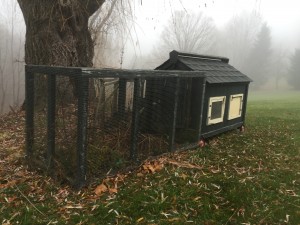
Do egg-laying chickens save a homesteader money? Accountant Mike said, "Not worth it!" in this previous episode. But what if you sell the eggs produced by your flock? Does that income equal the time, money, and energy from raising chickens? We interview John from The Growing Farms Podcast to find out on this episode of Homesteady.
Want more chicken tips? Dr. Michael Darre from the University of Connecticut, chicken specialist, may home some answers for you.
Want to learn more about farms and finance? The Farm Finance Project gives you an insider view on the workings of 12 small-scale farms.
John's extended interview giving his own chicken tips is available in the Pioneer Library. Pioneers also have access to an audio chicken raising class in the Pioneer Library. Join now!
Motivated and educated enough about chickens to build your own chicken tractor? Click here checkout John's Plans. (BTW... it's an affiliate link) 
Check out Homesteady on YouTube for great videos about many homesteading topics, including this one on How to Get Your Chickens to Lay More Eggs in the Winter.
The Suburban Escapee- Tales from Raising Roosters Farm
Do you see that fancy, $400 coop posted up there?
That is NOT what my backyard chicken coop looks like. This is the "Budget Coop:"
And it cost us MAYBE $100. In fact, this is the Budget Coop 2.0. Version 1.0 consisted of the lifted roof part you see on the left being made of free pallets buried into the ground like a fence with chicken wire over the top. The part on the left is actually a chicken tractor a friend of ours gifted us when they moved. We call it "the extension." As you can see, I really do have backyard chickens- the coop abuts my shed, and that's my house in the background.
Before I gloat about my Budget Coop, however, I have to admit: Accountant Mike has a point. Over the last 18 months, we have brought home and fed, at one time or another, no fewer than 18 chickens.
We currently have five. One of them lays eggs. I am not great with numbers, but even I know the math on that one does not work out.
What happened to the other THIRTEEN CHICKENS? I could go on for days, but here is a short list:
- Raccoon (The Country Boy threw it like an Olympic hammer out of the coop.)
- Neighborhood husky attack
- Free-range gone amiss (did you know baby chicks can climb into the undercarriage of your car?)
- Hawk
- And finally...Roosters. We have had so many roosters I have re-named our home "Raising Roosters Farm."
To continue to justify the expense of backyard chickens, we have stuck to a few budgeting tips:
- We get free chickens from the Spencer Fair. If you want free chickens, I suggest contacting your local 4-H chapter to see if chicks will be bred for the purpose of an agricultural fair or other educational venue. Free chicks could be yours!
- Source free building materials to build your coop. We had to buy the wood for the frame and the screws. Everything else was gifted from leftover projects of friends and family.
- Chicken poop and eggs shells are great fertilizer! We save money on gardening expenses this way. In fact, I challenge Accountant Mike to calculate, pound for pound, how much I would have spent on compost and fertilizer for my garden if I didn't have chickens.
- Chickens can eat all household plant-based table scraps. In New England, when my compost pile is frozen, my chickens eat all my vegetable scraps and peelings, saving them from the trash.
- We dispatch the roosters. Or give them away. But most have gone to the "Soup Pot."
However, it's not completely about the money.
There are, however, as Accountant Mike's mom said, intangible benefits to owning chickens. Rather than getting chickens to replace our children, we got chickens for our children. My oldest daughter is a chicken whisperer, and she is the one that is able to hold, pet, catch, and herd the chickens.

The chickens have brought us more than eggs. My children have learned about where food comes from. They have learned to take care of another creature. They have learned about predators and death from the chickens. They have learned to be "calm and confident" when they approach animals, and to gage the effect of their presence.
For me personally, it's all about the taste. Farm fresh eggs are MUCH better than a "big ag" egg. I am an eggs over easy aficionado, and recently ate eggs at a popular chain restaurant. Spoiled by months of rich, delicious yolks, I nearly spit out my toast as my tongue met the insipid, watery yellow of the factory farmed egg I had ordered. An over easy egg cooked while still warm from the coop? Priceless.
Like what you heard? Want to read more? Visit our archive of show episodes and blog posts.
Not a Pioneer? Join here.
The Homesteady Pioneer Shoutout of the Episode
Paul and Katie
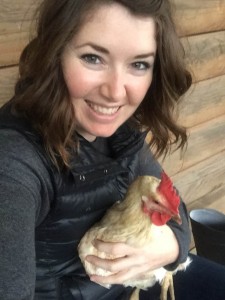
YOU could be next!
This episode was also brought to you by our partners RJS BEE Farm, and PowerPlucker.

